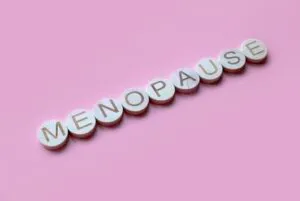5 Common Problems with Peri-menopause
Menopause starts for most women during middle age, but symptoms of age-related hormone changes can start well before the official end of your reproductive years. If you’re in your 30’s or 40’s and already experiencing unusual symptoms, then you may be dealing with peri-menopause. Plenty of changes take place as women age, from graying hair to looser skin, but peri-menopause can be one of the more unpleasant side effects of getting older. Here are five common problems related to peri-menopause and how to combat them.
starts for most women during middle age, but symptoms of age-related hormone changes can start well before the official end of your reproductive years. If you’re in your 30’s or 40’s and already experiencing unusual symptoms, then you may be dealing with peri-menopause. Plenty of changes take place as women age, from graying hair to looser skin, but peri-menopause can be one of the more unpleasant side effects of getting older. Here are five common problems related to peri-menopause and how to combat them.
#1 – Irregular Menstrual Cycles
The medical definition of menopause is being period-free for 12 consecutive months. Long before this happens, however, you may notice that your cycles get shorter or last longer than they did before. If you’ve always had a regular period, then you might suddenly start spotting between periods or experience a heavier or lighter flow. These changes are due to unpredictable ovulation. Because your body isn’t ovulating as regularly as it once was, your periods respond in kind. Talk to your gynecologist about methods to improve menstrual regularity.
#2 – Sexual Problems
Hormones play an important role in desire, stamina and pleasure when it comes to sex. Menopausal women report vaginal dryness and other problems that interfere with a healthy sex life, but it’s not uncommon for these same symptoms to affect women going through peri-menopause. Lower estrogen levels affect vaginal lubrication and elasticity, making sex more painful for some. Mood changes can affect your libido. Use personal lubricants and relaxation techniques to improve sexual pleasure, and talk to your doctor if problems persist.
#3 – Mood Changes
Crying during an emotional commercial or overreacting when your husband doesn’t take out the trash might be normal during PMS, but during peri-menopause, these symptoms can worsen. You may feel angry, irritable, depressed or moody for no reason. Mood changes are common during this transition period due to fluctuating hormones and difficulty sleeping. Getting enough sleep, practicing yoga or pursuing meditation can help you relax, which may also help you calm your mood swings.
#4 – Physical Side Effects
Aside from sexual problems, there are other physical side effects of peri-menopause, including hot flashes and night sweats. Women experience these symptoms on an individual basis, so you may be more or less affected than your peers. Even worse, night sweats and hot flashes can interfere with your sleep. If they do, try getting more exercise and adjusting your thermostat before bed to lower your core body temperature.
#5 – Related Medical Conditions
Fluctuating hormones don’t just affect your reproductive health. As you become less fertile, you also become more susceptible to a host of medical problems, including osteoporosis, heart disease and certain types of cancer. To reduce your risk of these and other diseases, check in with your doctor for an annual wellness visit. Early screenings, such as Pap tests and mammograms, can help you detect and treat problems before they evolve into life-threatening conditions. This is especially important if you have a family history of certain cancers.





